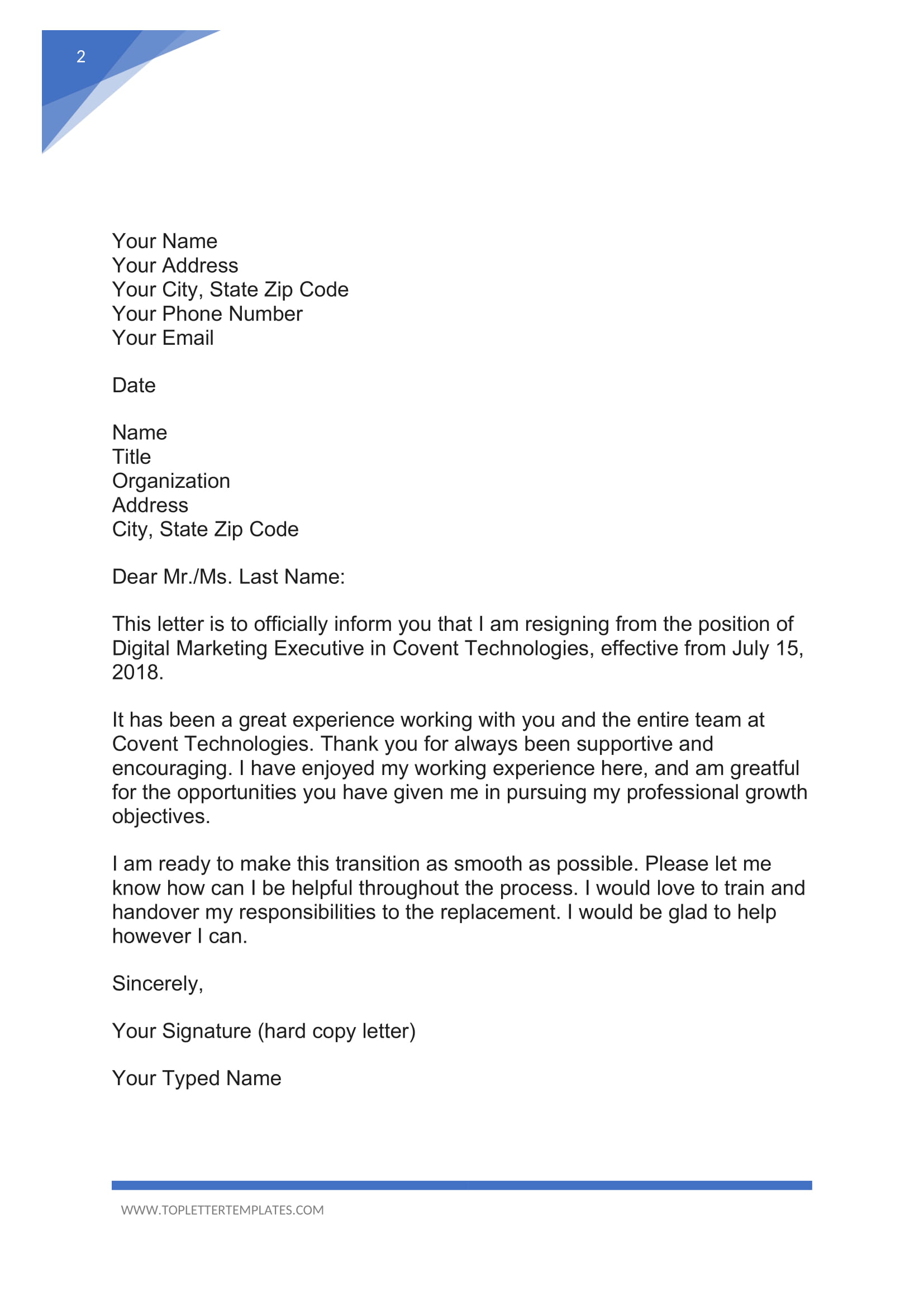Are you considering submitting a Formal Resignation Letter Should A Reason Be Given? You may be wondering whether it is necessary to include a reason in your letter. In this article, we will explore the attributes of a Formal Resignation Letter Should A Reason Be Given and provide you with examples that you can modify to suit your own situation.
Attributes of a Formal Resignation Letter Should A Reason Be Given
- Professionalism: A Formal Resignation Letter Should A Reason Be Given should maintain a professional tone throughout.
- Clarity: The reason for resigning, if provided, should be clearly articulated in the letter.
- Respectfulness: It is important to show respect for your employer and colleagues in your resignation letter.
- Gratitude: Expressing gratitude for the opportunities and experiences gained during your time at the company is a good practice.
- Notice Period: Clearly state your intended notice period in the letter, as per the requirements of your employment contract.
Example of a Formal Resignation Letter Should A Reason Be Given
Dear [Recipient’s Name],
I am writing to formally resign from my position as [Your Job Title] at [Company Name], effective [Last Working Day, typically two weeks from the date of the letter].
After careful consideration, I have decided to move on to new opportunities that align more closely with my career goals and aspirations. I am grateful for the support and mentorship I have received during my time at [Company Name], and I appreciate the professional growth and development that I have experienced here.
I will ensure a smooth transition of my responsibilities and complete any outstanding tasks before my departure. I am committed to fulfilling my notice period and am open to discussing the handover process to ensure minimal disruption to the team.
Thank you for the opportunities and experiences that I have gained at [Company Name]. I have enjoyed working with the talented team here and will cherish the memories made during my time at the company.
Sincerely,
[Your Name]
Formal Resignation Letter Should A Reason Be Given
免费 Sample Formal Resignation Letter | 样本文件在 allbusinesstemplates.com

Resignation Letter Due to Personal Reason (18 Examples)

Letter of resignation sample – dikidetroit

Resignation Letter Template Professional Collection

How to write a Resignation Email | Resignation Email Format

Formal Resignation Letter Template Sample – PDF, Word

